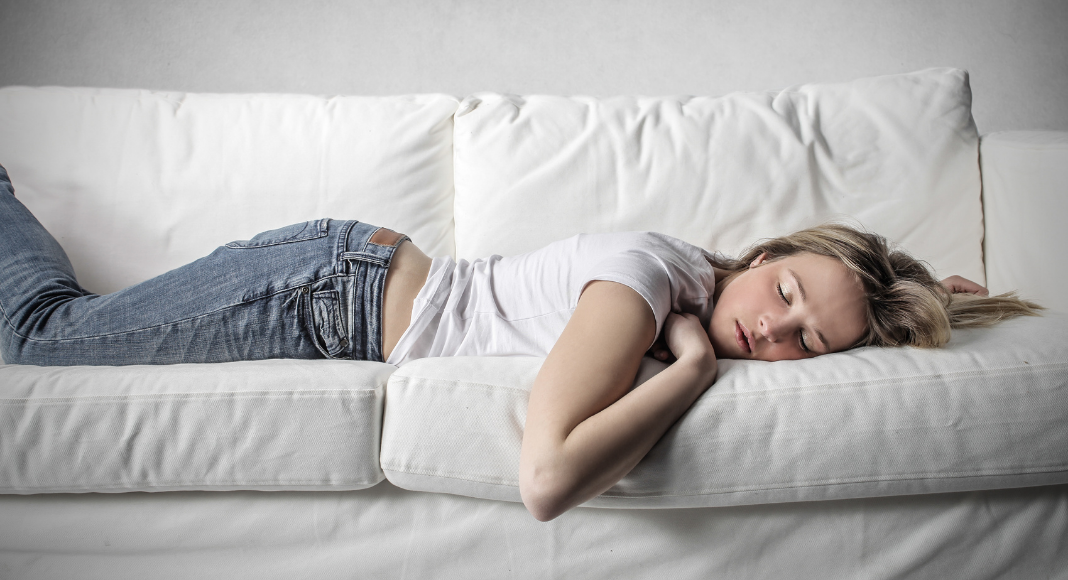 In a few weeks, my son will officially become a teenager. It’s hard to believe, but undeniable – in a little over a year, he’s grown five inches, his voice has dropped an octave, and his 8:15 p.m. bedtime is a thing of the past.
In a few weeks, my son will officially become a teenager. It’s hard to believe, but undeniable – in a little over a year, he’s grown five inches, his voice has dropped an octave, and his 8:15 p.m. bedtime is a thing of the past.
I’ve always run a tight ship when it comes to sleep. Until about a year ago, he was asleep every night by 8:30 p.m. and happily bouncing out of bed by 7:00 a.m. Now, bedtime is an entirely different story. No matter what time the lights go out, he doesn’t fall asleep until 11:00 p.m. and can easily sleep in until 9:00 or 10:00 in the morning.
The scenario is probably familiar if you have an adolescent in the house. Tweens and teens are notorious for wanting to stay up late and sleep in. But if you think they’re just being difficult when they begin to fight bedtime, you’re mistaken. They’re not staying up late because they don’t want to sleep. They’re staying up late because they can’t sleep.
We all have an internal clock that tells us when to be awake and asleep. This built-in timer automatically makes us feel drowsy or alert at predictable times every day. Before adolescence, that internal clock directs most children to fall asleep somewhere around 8:00 or 9:00 p.m. Once puberty begins, however, internal rhythms shift dramatically, and tweens become biologically programmed to fall asleep two or three hours later.
Adolescents need just as much sleep as younger children – they’re just wired to need it at a different time of night.
The problem with this biological shift is that it doesn’t line up well with most adolescents’ demanding schedules, especially during the school year. Early classes, hours of homework, extra-curricular activities, and social obligations keep less than half of all American children from getting the nine and a quarter hours of sleep that they require to be well-rested. Trying to make up for lost sleep by sleeping in on the weekends may seem like a good idea, but only makes matters worse because it confuses their biological clocks and throws their schedules off even more.
There’s overwhelming evidence to confirm that sleep deprivation has a profound effect on our children’s health, safety, mood, behavior, cognitive ability, and academic performance.
Studies show that kids that are sleep deprived are more likely to fall asleep during class and have lower test scores. They’re more likely to have an automobile accident or sustain an injury while playing sports. They’re more likely to have mood swings, feel stressed, experience depression, and participate in dangerous, risk-taking behaviors. They’re at higher risk for health issues and for being overweight….the list goes on.
Some middle schools and high schools have already implemented later start times. They see measurable improvements in student attendance, alertness, test scores, and behavior, but it may be years before delayed start times are the norm in America’s school systems. Until then, it’s up to parents to do everything they can to help their adolescents get the sleep they need.
1. Keep bedtime and wake-up time consistent, even on weekends.
Do what you can to encourage your tween or teen to go to bed and get up at the same time every day. Determine their ideal bedtime by starting with their required wake-up time and counting backward nine hours. Try to avoid scheduling activities that will get in the way of a reasonable and consistent bedtime, and don’t let weekend sleep schedules vary by more than an hour. An extra hour of sleep on the weekends can help your child feel more rested, but sleeping until noon will throw off their internal clock and make getting up early on Monday morning even more difficult.
2. Create an environment that promotes sleep.
Darkness signals the body to produce melatonin, which helps us sleep. Dim the lights one hour before bedtime, and be sure that their bedroom is dark when it’s time to sleep. Discourage video games, loud music, and strenuous physical activity for at least two hours before bedtime, and encourage your tween or teen to take a shower or read a book before bed to help them relax and unwind. Make sure that their room isn’t too cold or too warm. Most experts agree that between 68 and 72 degrees Fahrenheit is an ideal range for sleeping.
3. Turn off the electronics.
TV, cell phones, computers, and other electronic gadgets emit blue light, which suppresses the body’s production of melatonin. Insist that screen time be over at least thirty minutes before bedtime and, if at all possible, keep electronics out of the bedroom entirely. Kids who have trouble falling asleep will get bored and be tempted to turn them back on, delaying sleep even more.
4. Limit naps.
A brief nap – 20 or 30 minutes – can help to recharge your child’s batteries without interfering with bedtime. Just be sure that they don’t nap too late in the day – that will make it harder for them to fall asleep on time.
5. Limit caffeine.
Soda, tea, coffee, and energy drinks are loaded with caffeine which can interfere with sleep. Limit your tween or teen’s caffeine intake, especially after 2:00 or 3:00 p.m. Stock the fridge with caffeine-free alternatives. If caffeinated beverages aren’t available, they won’t be tempted to drink them. Also, you may not know that some over-the-counter medications contain caffeine. Check with your pediatrician for caffeine-free alternatives.
5. Offer a sleep-inducing snack one hour before bedtime.
Certain foods contain sleep-inducing properties. Tryptophan-rich foods, for example, have a sedative-like effect on the body, especially when combined with complex carbohydrates (which aid in delivering the tryptophan to the brain) and calcium (which helps the brain convert tryptophan to melatonin). Foods that contain magnesium and calcium work well together to help relax muscles.
Try offering a snack about one hour before bedtime that includes one of the following sleep-inducing food combinations, or make up your own, of course – the possibilities are endless.
• Unsweetened whole-grain cereal or granola with milk
• Apple slices with low-fat cheese
• Whole grain pita and hummus or spinach dip
• Peanut butter on whole-grain bread
• Almond butter on whole-grain toast
• Yogurt with sliced bananas
Note: Your tween/teen should avoid sugary foods before bed to keep blood sugar levels stable and steer clear of spicy foods that may upset their stomachs or cause indigestion. It’s also essential to avoid drinking too much liquid before bed to avoid extra trips to the bathroom.
7. Model good sleep habits.
The best way to teach your child the value of sleep is to practice healthy sleep habits yourself. Remind yourself that children learn by example and that if you don’t respect your own need for quality sleep, your child is likely to undervalue it as well.
8. Advocate for later middle and high school start times.
Even if you don’t have a child in middle or high school, you will before you know it. The National Sleep Foundation is a great resource for information on the subject and may inspire you to bring awareness to your community and engage in this important discussion.

























